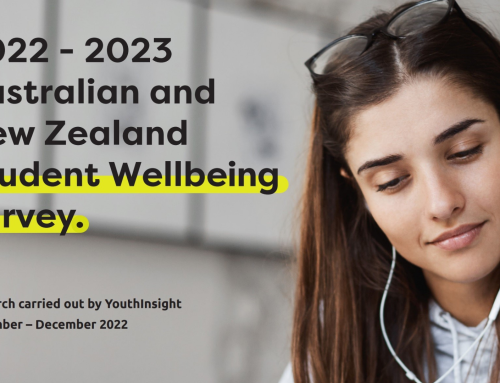
In the last couple of years university students have been through many significant changes, having to learn and study online during a pandemic, and complete major milestones like graduation or an internship via Zoom. They’ve missed interacting in person with their professors and fellow students and had to forgo all the social activities that have previously been a day-to-day part of student life and the on-campus university experience.
Yet, despite all the challenges brought on by the global pandemic and uncertainty about what lies ahead, new research has revealed the majority of students enrolled in Australian universities feel optimistic about their professional futures.
The new research, commissioned by leading online study support service Studiosity and conducted by independent agency Student Edge, has found that:[1]
- Almost two thirds (63%) of university students feel optimistic about finding a job related to their degree, with over 1 in 4 (27%) feeling very optimistic
- 9 out of 10 students (89%) believe what they are studying will be relevant to their future career path
- Postgraduate students are slightly more optimistic (69%) than undergraduates (60%)
- Males are slightly more optimistic (67%) compared to females (61%)
- Levels of optimism vs. pessimism were consistent across both regional/ remote and metro students
While the majority are feeling optimistic, delving deeper into the data provided interesting insights into why some students are not as hopeful, with the research also identifying that a leading reason for pessimism in students is reduced job and networking opportunities due to COVID, causing some students to be concerned they are not making valuable connections whilst studying online.
A few comments from students who felt this way included “the lack of networking or the ability to make connections due to COVID [is causing me to feel pessimistic]” and “COVID has had a real impact on the fields in which I want to work. The state government has also cut significant funding, so there are far less jobs in the area than when I started the degree.”
For the students who do feel pessimistic (16%), almost 6 out of 10 (57%) said what universities can do to help them feel more optimistic about their future career is offer more internships and practical work experience opportunities, followed by more careers counselling and career seminars (18%). Around 1 in 10 (13%) believe additional study support to improve their grades will help increase their job prospects.
Professor Judyth Sachs, Chief Academic Officer at Studiosity, says “It’s pleasing to see that a significant majority of students are feeling optimistic about their future. It’s a testament to universities that they have been focusing on student safety and wellbeing, making students feel supported and listened to throughout the challenges of the pandemic.”
“However, it’s also clear that some students have found it difficult to adjust to amidst the loss of the ‘student experience’ and the usual connection and social opportunities that are part of studying on-campus.”
As we head into the 2022 academic year, Professor Judyth Sachs shares three ways that more universities are supporting students to fulfill their academic potential and achieve their future goals:
- Accessible peer support programs: Students need to feel they have a rightful place within the university and that they belong. Research shows that students benefit from peer support and peer-to-peer learning programs, and that it increases confidence and sense of belonging in students.[2] Students want equal access to positive experiences, interaction with peers, and to engage with students of culturally and linguistically-diverse backgrounds – to fulfil the promise of a university degree as a positive and life-changing investment.
- Virtual networking events: With 2022 O-Weeks underway, there has been understandable revelling in being back on campus. I hope that we can continue to increase belonging on campus, while also keeping the inclusivity and innovation that came from sudden adaptation in 2020. This includes recognising the many regional, rural, remote, online, working, and neurodiverse students who can’t always participate in ‘traditional’ student life.
- Ensure students have a range of study support options: Students learn best when they have a range of different study support options at their figure tips that are easily accessible to them 24/7. It’s clear that Australian universities are looking holistically at their whole-of-institution approach to student services. Struggling academically correlates with higher stress levels, feelings associated with poor mental and emotional wellbeing, and an overall negative outlook on the future.
Studiosity works alongside universities to provide online study support, anytime, anywhere to their students. The company currently partners with more than 100 universities, to deliver academic support online, right when students need it, helping thousands to progress and succeed with their studies, regardless of their study mode, background, personal circumstances or location.
For further information, or to request an interview with Professor Judyth Sachs, contact:
Kathleen Quere at Agent99 PR on 0421 252 326 or kathleen@agent99pr.com
*Research was conducted and analysed by YouthInsight, the full service research team of Student Edge. The data is based on analysis of over 1,000 Australian university student responses in 2022. The students used for this study were 18+ years old, and consisted of a mix of both domestic and internationally enrolled students.
[1] Studiosity Student Wellbeing Survey, Student Edge, 2022.
[2] Tullis, J., & Goldstone, R. (2020). Why does peer instruction benefit student learning?. Cognitive Research: Principles And Implications, 5(1). doi: 10.1186/s41235-020-00218-5









Leave A Comment